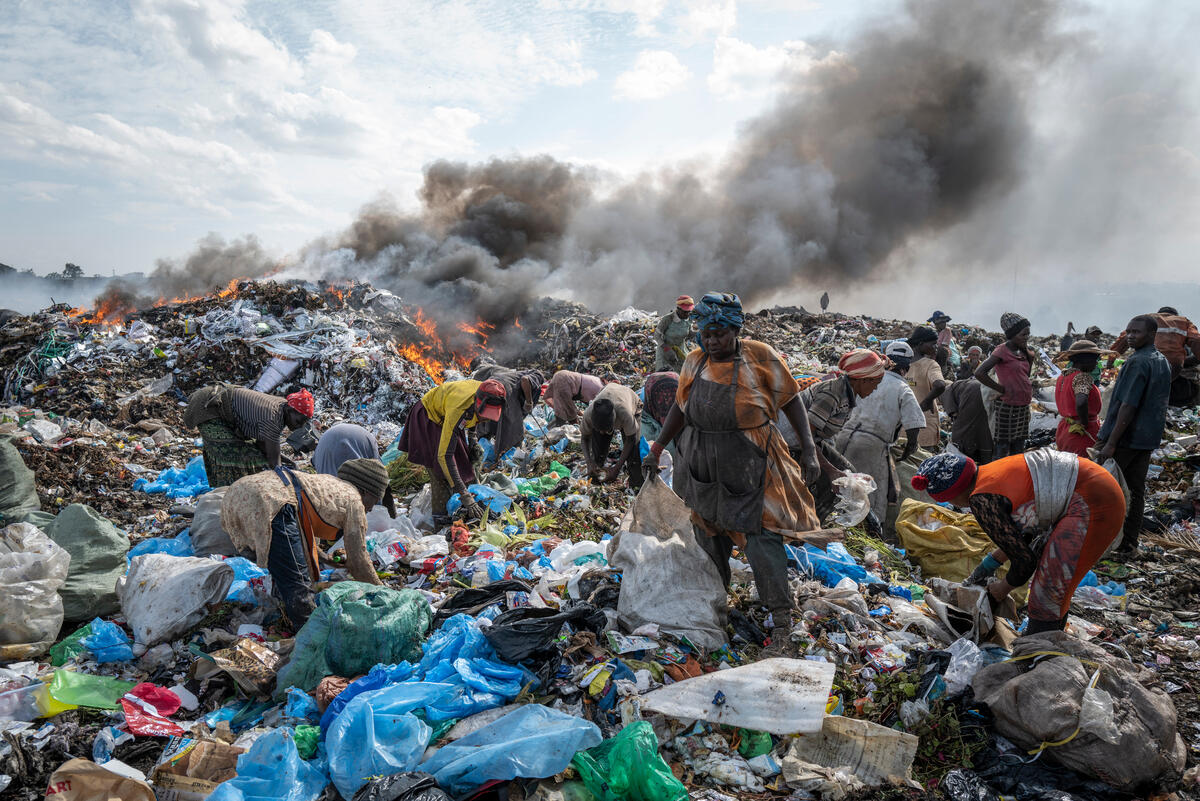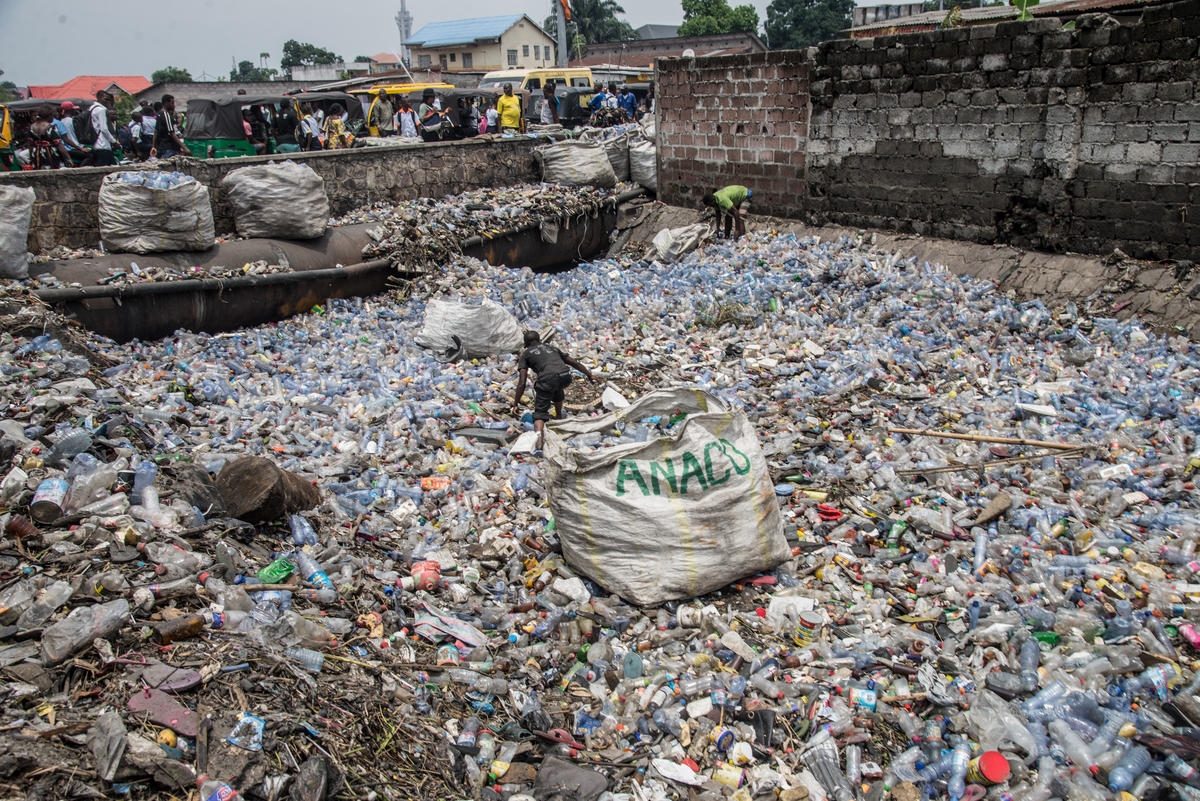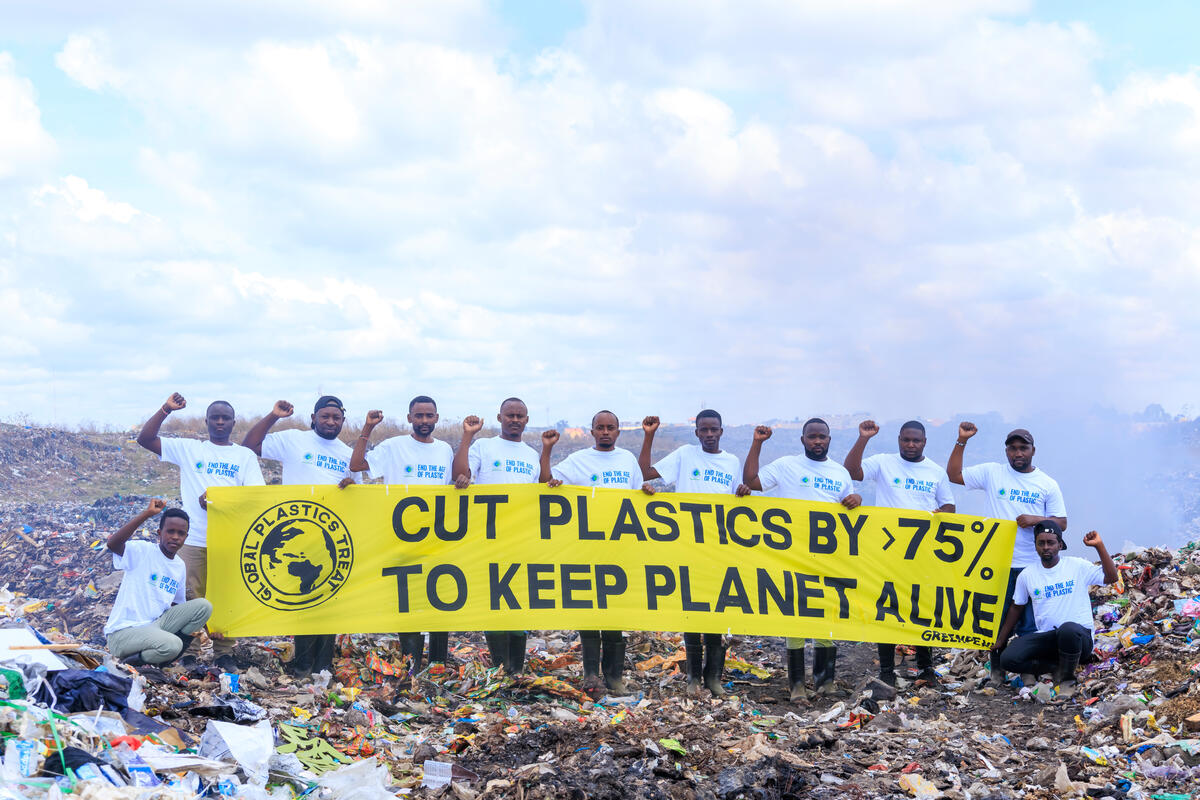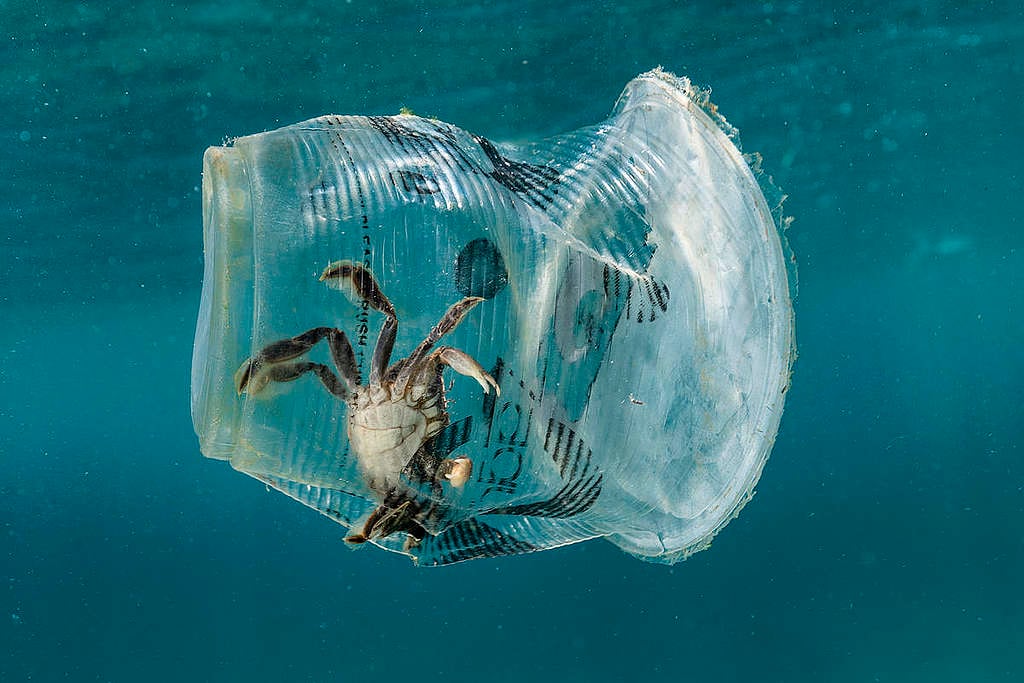Plastics have infiltrated our lives, our streets, body organs, food, soil, ecosystems, and our waterways. This crisis, driven by the relentless pursuit of profit by major oil companies and their counterparts, spares no corner of the globe. Africa, though responsible for just 5% of plastic production and 4% of consumption globally, bears the brunt of this crisis through transboundary transfer of plastic waste and what can only be aptly described as 'waste colonialism.'
As petrochemical corporations term Plastics as cheap and convenient, the true cost of plastics is largely invisible; biodiversity destruction, flooding, harming people's health, social injustice and fuelling the climate crisis.
Plastic pollution has far-reaching consequences on Africa's health, environment and economy. This is why a strong Global Plastics Treaty is a lifeline for Africa.
Plastics and Health in Africa
The fundamental right to health is a cornerstone of our human rights, and the improper disposal of plastic waste in many African cities and villages is threatening this right. Research conducted by Stanford University and the Technical University of Mombasa has revealed a disturbing connection between plastic waste and the spread of tropical diseases like Malaria, chikungunya, and dengue fever, as plastic waste creates breeding grounds for disease-carrying mosquitoes.
Microplastics (small particles of plastics) have been detected in the environment and human bodies. Termed as an emerging potential human health hazard, microplastics have effects ranging from oxidative stress, DNA damage, organ dysfunction, metabolic disorder, immune response, neurotoxicity, as well as reproductive and developmental toxicity.
Additionally, the burning of plastic waste, a common practice in some regions of Africa, releases harmful pollutants into the air, leading to respiratory problems and exacerbating existing conditions, all while contributing to air pollution-related diseases.

Plastics and the Environment
The visual evidence of plastic pollution is impossible to ignore. Plastic litter is everywhere, from the deepest parts of the ocean to the remotest stretches of land. The impact on Africa's wildlife and ecosystems is nothing short of devastating. Lions with plastic bottles and birds entangled in plastics are stark reminders that no place on our planet remains untouched by this crisis.
Marine life, including sea turtles and dolphins, often become entangled in plastic waste or mistake it for prey, leading to starvation as their stomachs fill with plastic. Plastic pollution in rivers and lakes threatens freshwater biodiversity, while terrestrial ecosystems suffer from littered landscapes. The overall biodiversity and health of Africa's ecosystems are under severe threat.

Plastics and Economy in Africa
The economic consequences of plastic pollution in Africa are significant and wide-ranging. The vital tourism industry, which contributes up to 4.4 percent of Africa's GDP, is adversely affected by littered beaches and landscapes, rendering these once picturesque sites unattractive to visitors. For example, in Senegal, thousands of used plastic bags, bottles and discarded sachets cover the beach, clinging to the mangrove branches that serve as nurseries for crabs and fish, entangling baby turtles and preventing them from making their way from the nest to the sea, and keeping tourists away.
Furthermore, Agriculture, a cornerstone of Africa's economy, which employs the majority of Africa's labor force and contributes 30-40% to Africa's GDP is not left behind. Plastic pollution harms soil fertility and water quality, rendering lands uncultivable. This exacerbates food insecurity, and causes job losses.
Moreover, the costs associated with cleaning up and addressing the healthcare issues resulting from plastic pollution further strain already limited resources which African governments, people and the environment are ultimately paying the price for.
The Path Forward: A Global Plastics Treaty
It is imperative that these injustices come to an end. A turning point is on the horizon: national governments, civil society representatives and multinational corporations are set to convene for the 3rd Session of negotiations (INC3) to develop an international legally binding treaty on plastic pollution, including in the marine environment from November 13th to 19th, 2023, in Nairobi, Kenya. This presents a unique opportunity to bid farewell to the age of plastic through a legally binding treaty.
Unlike the previous negotiation processes, INC3 is critical, as it marks the first time a tangible treaty draft, the "Zero draft", is going to be discussed.
A strong legally binding Global plastics treaty that will finally #EndTheAgeOfPlastics should:
- Cut total plastic production by at least 75% by 2040 to ensure that we are staying below 1.5° C for our climate and to protect our health, our rights and our communities.
- Tackle the whole lifecycle of plastics from extraction to disposal.
- Keep oil and gas used to make plastics in the ground and demand big brands to switch to refill and reuse systems and reduce single use plastic production.
- Hold countries accountable for managing their own waste and ending waste colonialism.
- Ensure a just transition for workers and the health of the most affected communities.

Parting shot
A strong Global Plastics Treaty is not only essential for Africa but for the entire world. It provides an opportunity for Africa to address its plastic pollution challenges, protect its unique ecosystems, and improve the health and well-being of its people. By joining hands with the global community, the African group of negotiators can deliver sustainable solutions for a cleaner, healthier, and more prosperous plastics free continent for future generations.
Gerance Mutwol is a Greenpeace Africa plastics campaigner based in Nairobi, Kenya.
Ask world leaders to support a strong global plastic treaty that addresses the whole life cycle of plastic.







